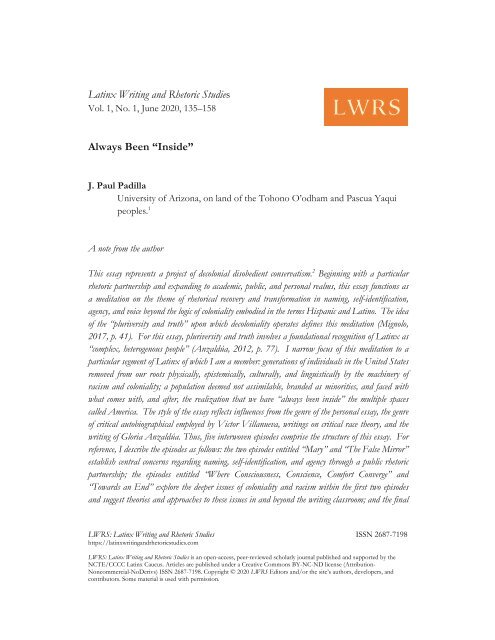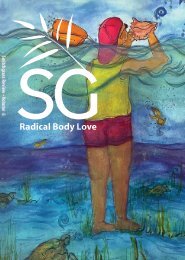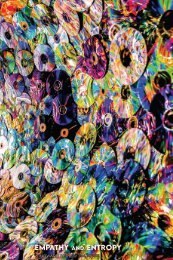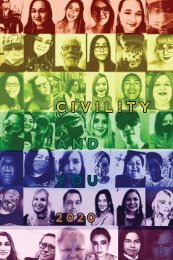LWRS June 2020 Volume 1, Issue 1
Inaugural Issue co-edited by Yndalecio Isaac Hinojosa and Isabel Baca
Inaugural Issue co-edited by Yndalecio Isaac Hinojosa and Isabel Baca
Create successful ePaper yourself
Turn your PDF publications into a flip-book with our unique Google optimized e-Paper software.
Latinx Writing and Rhetoric Studies<br />
Vol. 1, No. 1, <strong>June</strong> <strong>2020</strong>, 135–158<br />
Always Been “Inside”<br />
J. Paul Padilla<br />
University of Arizona, on land of the Tohono O’odham and Pascua Yaqui<br />
peoples. 1<br />
A note from the author<br />
This essay represents a project of decolonial disobedient conservatism. 2 Beginning with a particular<br />
rhetoric partnership and expanding to academic, public, and personal realms, this essay functions as<br />
a meditation on the theme of rhetorical recovery and transformation in naming, self-identification,<br />
agency, and voice beyond the logic of coloniality embodied in the terms Hispanic and Latino. The idea<br />
of the “pluriversity and truth” upon which decoloniality operates defines this meditation (Mignolo,<br />
2017, p. 41). For this essay, pluriversity and truth involves a foundational recognition of Latinx as<br />
“complex, heterogenous people” (Anzaldúa, 2012, p. 77). I narrow focus of this meditation to a<br />
particular segment of Latinx of which I am a member: generations of individuals in the United States<br />
removed from our roots physically, epistemically, culturally, and linguistically by the machinery of<br />
racism and coloniality; a population deemed not assimilable, branded as minorities, and faced with<br />
what comes with, and after, the realization that we have “always been inside” the multiple spaces<br />
called America. The style of the essay reflects influences from the genre of the personal essay, the genre<br />
of critical autobiographical employed by Victor Villanueva, writings on critical race theory, and the<br />
writing of Gloria Anzaldúa. Thus, five interwoven episodes comprise the structure of this essay. For<br />
reference, I describe the episodes as follows: the two episodes entitled “Mary” and “The False Mirror”<br />
establish central concerns regarding naming, self-identification, and agency through a public rhetoric<br />
partnership; the episodes entitled “Where Consciousness, Conscience, Comfort Converge” and<br />
“Towards an End” explore the deeper issues of coloniality and racism within the first two episodes<br />
and suggest theories and approaches to these issues in and beyond the writing classroom; and the final<br />
<strong>LWRS</strong>: Latinx Writing and Rhetoric Studies ISSN 2687-7198<br />
https://latinxwritingandrhetoricstudies.com<br />
<strong>LWRS</strong>: Latinx Writing and Rhetoric Studies is an open-access, peer-reviewed scholarly journal published and supported by the<br />
NCTE/CCCC Latinx Caucus. Articles are published under a Creative Commons BY-NC-ND license (Attribution-<br />
Noncommercial-NoDerivs) ISSN 2687-7198. Copyright © <strong>2020</strong> <strong>LWRS</strong> Editors and/or the site’s authors, developers, and<br />
contributors. Some material is used with permission.





